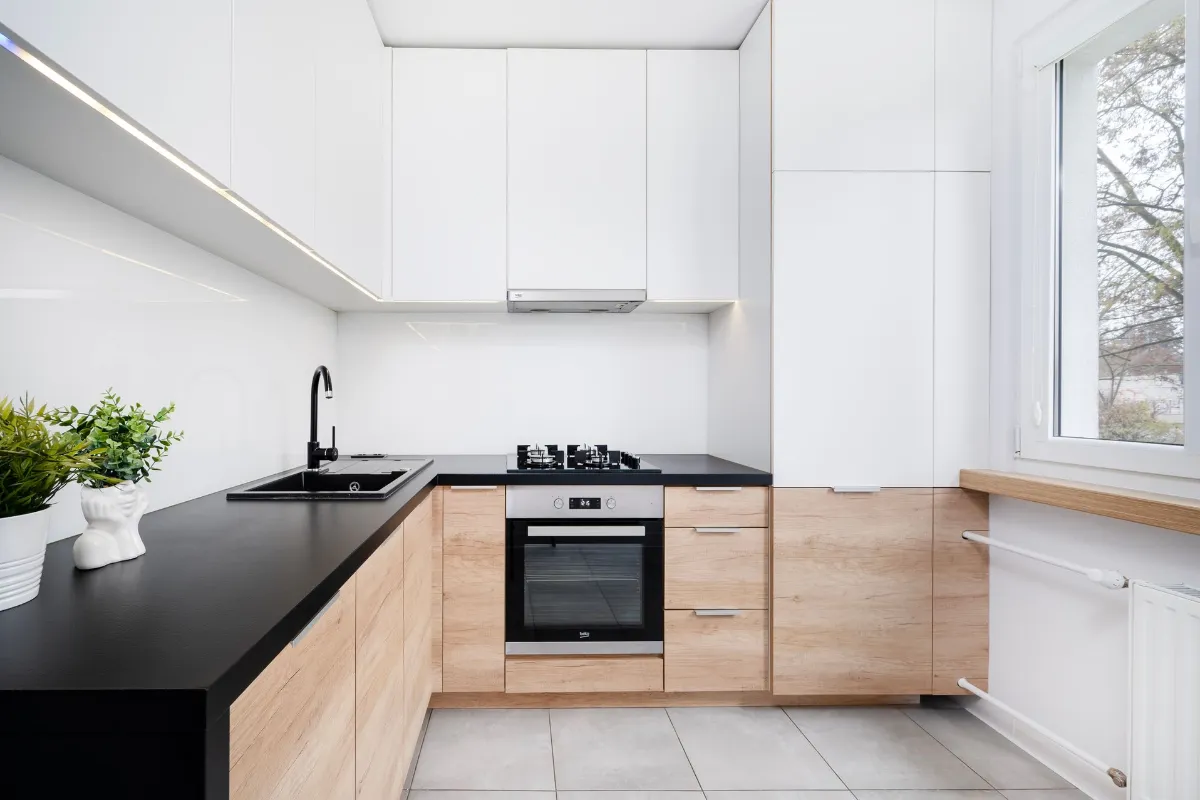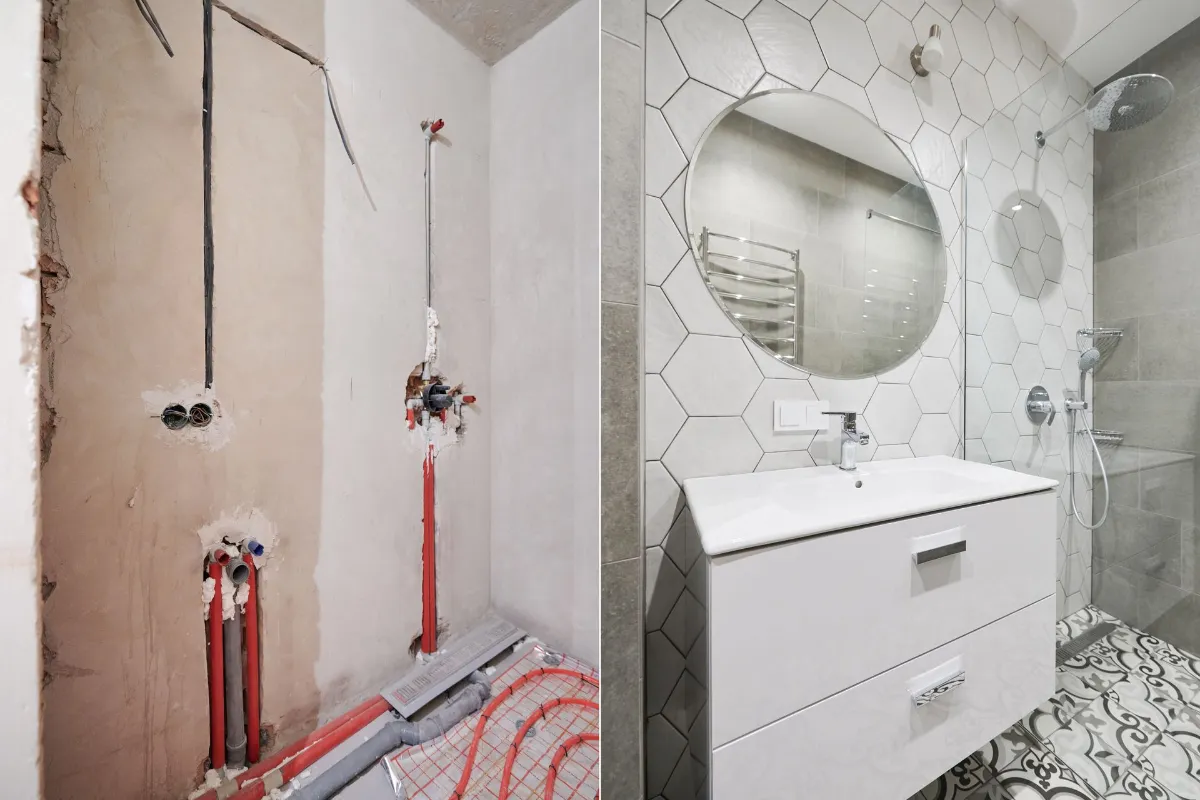Renovating a kitchen or bathroom in strata without the stress

In a strata unit, most of the changes you make at home come with responsibilities beyond your front door. As with standalone dwellings, kitchens and bathrooms are the most impactful spaces for renovating. With just two rooms, you can completely modernise the look and feel of the space and increase its value significantly. However, in strata, there are regulations to navigate.
At All Suburbs Strata Management, we have more than 40 years of experience in residential strata management in Greater Sydney, Nepean and the Central Coast. We know how important it is to match your renovation plans with the rules that keep everything compliant and fair, and to do it from the outset.
Why kitchen and bathroom upgrades are the best
Kitchens and bathrooms are two of the most important spaces when it comes to value and appeal. They’re expensive rooms to renovate, but they tend to deliver a stronger return on investment than cosmetic changes like repainting or replacing carpets. Prospective buyers and tenants pay close attention to these areas, and even in a home you plan to stay in, upgrading them improves the overall impression of the home.
In older strata buildings, kitchens and bathrooms are often where you’ll find the most problems. Plumbing that hasn’t been updated in decades, cramped or awkward layouts, and hidden water damage are all common, particularly in buildings constructed before stricter waterproofing standards were introduced. Renovating also gives you the chance to address these underlying issues properly instead of just covering them up.
A good renovation can make your kitchen or bathroom much easier to use and far more pleasant to spend time in. In buildings where space is already tight, clever storage can make a big difference. This is your chance to rethink the layout and make every bit of the room work harder for you. New fixtures and appliances are also more energy and water-efficient, which can lower utility bills and reduce your carbon footprint.

One of the easiest ways to improve your kitchen or bathroom without triggering major approvals is to rethink the layout while keeping the structure intact. For example, you can move cabinets around, adjust bench heights or relocate appliances as long as you stay within existing plumbing and electrical service points. This enables the creation of a more functional and attractive space without touching walls, waterproofing or common property.
It also pays to choose materials and appliances that suit strata living. Quiet dishwashers, rangehoods and washing machines are good for your own sanity, and they help keep the peace with neighbours. Water-saving taps, showerheads and dual-flush toilets are now standard, and many buildings even encourage them to minimise shared water bills.
For flooring, choose materials that limit noise and comply with your building’s by-laws. Vinyl, cork and carpet work well in strata because they absorb sound. Always use an appropriate underlay to prevent noise travelling to neighbouring units, and check the building’s soundproofing standards before you decide.
You can also make a small kitchen or bathroom feel bigger with a few smart design choices. Built-in shelves and cupboards keep clutter out of sight and make the most of the space you have. Light, neutral colours and well-placed mirrors help reflect light and create a sense of openness without changing the room’s actual size.
Understanding strata rules and how approvals work
In NSW, renovations in a strata unit fall into three categories under the Strata Schemes Management Act 2015:
- Cosmetic — simple changes like painting, laying new carpet or adding built-in wardrobes. These don’t need formal approval, but you should still let the owners corporation know.
- Minor — upgrades such as replacing kitchen cabinets, installing hardwood flooring or adding recessed lighting. These usually need approval at a general meeting or must fit under an existing by-law.
- Major — anything that affects the structure, waterproofing or shared services of the building. This always needs a special resolution and often a specific by-law before you can begin.
Waterproofing and plumbing upgrades almost always fall into the major category because they involve common property and can affect other units. In kitchens and bathrooms, the waterproof membrane under tiles, pipes in the walls or under the floor, and floor drains are all considered part of the building rather than part of your individual lot. Damaging or altering them without approval can lead to costly disputes or even legal action if it causes leaks or water damage elsewhere. This type of work is also regulated under the Design and Building Practitioners Act, which requires certain waterproofing and structural work to be designed and certified by registered professionals.
The first part of the approval process is notifying your strata manager or owners corporation of what you plan to do. If your renovation is considered minor or major, you’ll usually need to provide a clear scope of work, have a by-law prepared if necessary, and take it to a general meeting for approval. All work must comply with the Building Code of Australia and any conditions imposed by the owners corporation. Checking these steps at the outset helps avoid delays, fines or disputes once work is underway.
How to stay compliant when renovating the kitchen or bathroom
To keep your kitchen or renovation project running smoothly, always choose contractors who are familiar with strata work and understand the rules around access, work hours and protecting common property. This helps avoid damage to shared areas and keeps everything within building guidelines.
Make sure you keep good records of any work that affects common property, like waterproofing or plumbing. Having that information on hand can help avoid disputes later, especially if you decide to sell or if maintenance is needed down the track.
It’s also courteous to let your neighbours and building manager know what’s planned and when. Good communication can help prevent complaints and make it easier to manage noise and access while the work is underway.

Renovating a kitchen or bathroom in a strata unit isn’t always straightforward, but it doesn’t have to be difficult either. When you take the time to plan, involve the right people and stay mindful of the building and those living in it, you set yourself up for a smooth project and a result you can enjoy for years to come.
At ASSM, we work to keep buildings compliant and communities running smoothly. Clear processes around renovations help protect both the property and the people who share it.
Need a strata manager you can rely on? ASSM brings over 40 years of expertise across residential, community, commercial and industrial properties. If your current manager is falling short, contact our experienced team today. We’ll ensure the handover is smooth and hassle-free.











